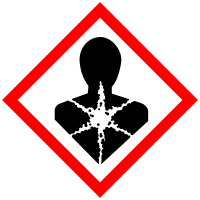
Photo from wikipedia
Epidemiologic studies have indicated that cruciferous vegetables can influence the cancer risk; therefore, we examined with a cross-sectional approach the correlation between the frequent consumption of the total cruciferous vegetables… Click to show full abstract
Epidemiologic studies have indicated that cruciferous vegetables can influence the cancer risk; therefore, we examined with a cross-sectional approach the correlation between the frequent consumption of the total cruciferous vegetables and the formation of bulky DNA damage, a biomarker of carcinogen exposure and cancer risk, in the Gen-Air study within the European Prospective Investigation into Cancer and Nutrition (EPIC) cohort. DNA damage measurements were performed in the peripheral blood of 696 of those apparently healthy without cancer controls, including 379 never-smokers and 317 former smokers from seven European countries by the 32P-postlabeling assay. In the Gen-Air controls, the median intake of cruciferous vegetables was 6.16 (IQR 1.16–13.66) g/day, ranging from 0.37 (IQR 0–6.00) g/day in Spain to 11.34 (IQR 6.02–16.07) g/day in the UK. Based on this information, participants were grouped into: (a) high consumers (>20 g/day), (b) medium consumers (3–20 g/day) and (c) low consumers (<3.0 g/day). Overall, low cruciferous vegetable intake was correlated with a greater frequency of bulky DNA lesions, including benzo(a)pyrene, lactone and quinone-adducts and bulky oxidative lesions, in the adjusted models. Conversely, a high versus low intake of cruciferous vegetables was associated with a reduction in DNA damage (up to a 23% change, p = 0.032); this was particularly evident in former smokers (up to a 40% change, p = 0.008). The Generalized Linear Regression models indicated an overall Mean Ratio between the high and the low consumers of 0.78 (95% confidence interval, 0.64–0.97). The current study suggests that a higher intake of cruciferous vegetables is associated with a lower level of bulky DNA adducts and supports the potential for cancer prevention strategies through dietary habit changes aimed at increasing the consumption of cruciferous vegetables.
Journal Title: Nutrients
Year Published: 2022
Link to full text (if available)
Share on Social Media: Sign Up to like & get
recommendations!